A Sweet Tooth (and Over-eating) May Increase Your Risk for Alcoholism
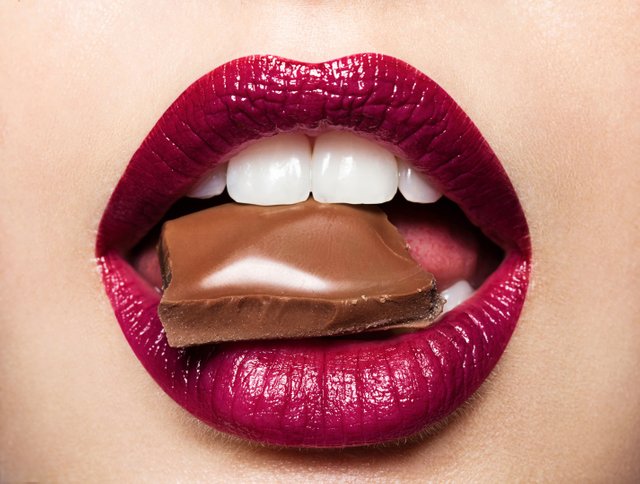
Introduction
On going through some of my stored papers - I came across a Review by Leggio et al. from 2011 that looks at evidence for an association between feeding related pathways, sweet preference and alcohol dependence.
I thought it would be an interesting issue to examine as I feel that this speaks in some respects to my own personal experiences.
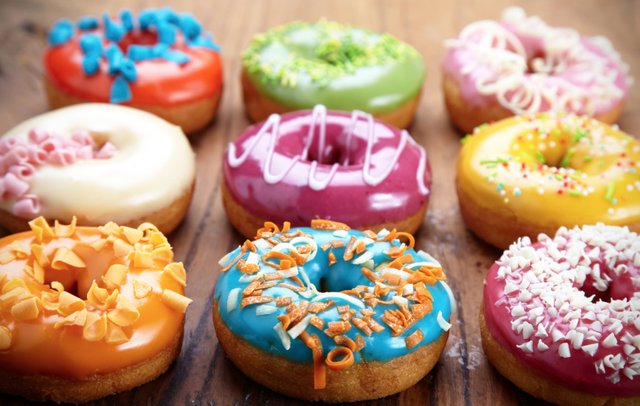
I have always had a craving for sweet and sugary foods and it is in relation to these types of food that I have had the most problems regulating my weight.
In times of stress and feeling low I would crave them even more.
I also believe my problems with alcohol started when I started to use alcohol as a food substitute.
The Paper
TLDR - Here is the Super Summary if you don't have time for the rest:
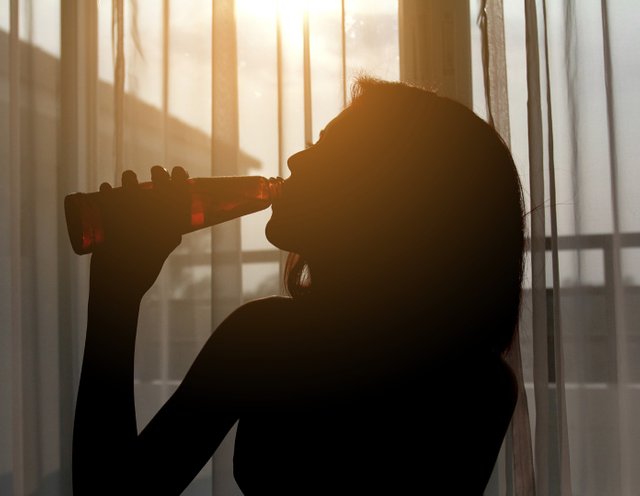
The review strongly suggests that according to the body of research there is a strong correlation between alcoholism and the following:
- Preference for sweet taste.
- µ-Opioid receptor activity within brain reward centres.
- Novelty seeking personality traits.
- Mood and Anxiety Disorders.
- Neuropeptides like NPY and ghrelin.
Alcohol and Food/Appetite Mechanisms
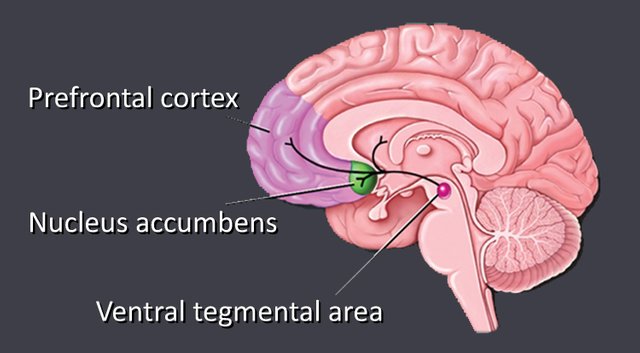
Image Source
- Alcohol and food seeking behaviours are thought to share common neural pathways.
- Individuals with eating disorders have a higher prevalence of both alcohol and drug abuse.
- Medications that can be used to treat alcohol abuse seem to also decrease appetite and cause weight reduction.
- Food rewards are mediated by endogenous opioids - specifically the µ-opioid receptors in the Nucleus Accumbens (NcAcc) and Ventral Tegmental Area (VTA) of the brain.
- I also recently reported on research that implicates alcohol in directly stimulating Agrp neurones within the hypothalamus. These cells are associated with hunger/starvation signalling.
Sweet Tastes and Genetics
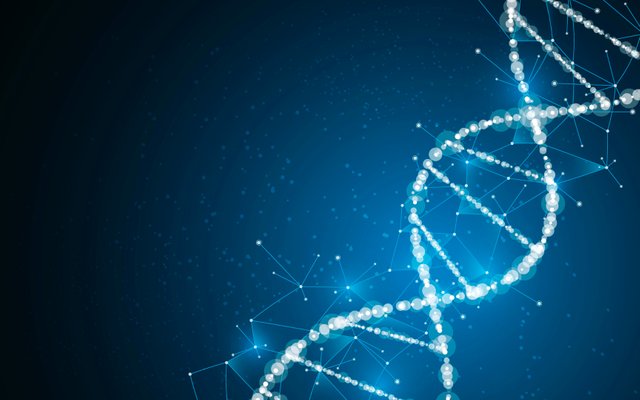
According to the paper:
"Sweet tasting foods and beverages are highly preferred by plant-eating animals including humans, presumably because sweetness reflects the presence of caloric sugars.
"Hedonic response to sweet taste (HRST) is strongly influ- enced by inborn (innate) factors."
N.B. hedonic response = pleasure based response
"HRST is believed to be a stable heritable trait that reflects qualitative differences in taste perception."
A strong genetic component is suggested by:
"twin studies indicate that approximately half of the variation in liking for sweet solution and use-frequency of sweet tasting foods (49 to 53%) was explained by genetic factors (Keskitalo et al., 2007)."
Sweet Preference: SDL and SL/Type I and II
There appear to be 2 main phenotypes for sweet preference in humans. They are referred to as SDL (Sweet Disliking) and SL (Sweet Liking).
This is a slightly confusing name system as both types like sweet tastes as a whole (nearly all humans do), the difference is in the degree SL favouring higher concentrations than SDL.
For this reason they are alternatively known as Type I (SDL) and Type II (SL).
Peripheral Modulation of Sweet Tastes:
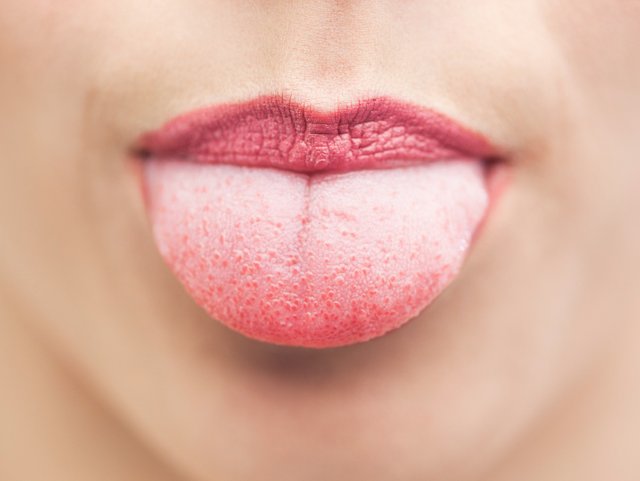
N.B. Peripheral just refers to outside of the brain:
- There are 3 known sweet taste receptors (mice and humans).
- Regulated by polymorphisms (different forms) of 3 genes: TASIR1, TASIR2 and TASIR3.
- The different forms have a large effect on consumption of sweet foods according to Liao and Schultz, 2003.
Central Modulation of Sweet Tastes
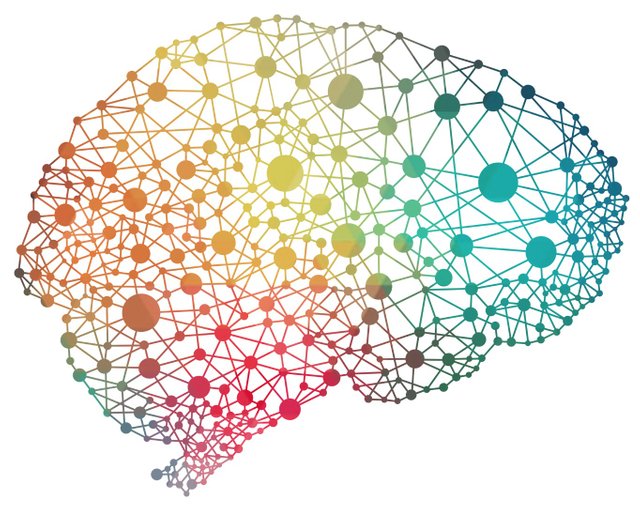
N.B. Central refers to the brain and Central Nervous System:
- Via the reward (mesolimbic) pathway.
- Known to involve opioid, serotonergic, GABAergic and dopaminergic pathways.
- Pleasurable responses (including sweet taste) result in dopamine accumulation in the NcAcc which is mediated by the activation of µ-opioid receptors on GABA interneurons causing disinhibition of dopaminergic firing.
- These opioid pathways are also associated with "feelings of satiety (fullness), sedation, rest, and bliss." - (DiChiara and North 1992).
- In animal studies administering opioids like morphine results in a decreased preference for sweeter tastes, blocking opioid receptors results in an increased preference.
- Therefore it is hypothesised that the SL preference is related to relative inhibition of the opioid pathways in the brain reward systems compared to those with SDL.
- Inhibition/reduced activity of the very same pathways are implicated in alcoholism and other addiction related behaviours (gambling, opioid abuse, sex etc).
Sweet Taste and Mood Disorders

- Negative Mood States are associated with a preference and craving for sweeter more carbohydrate rich foods (Mennella et al., 2010).
- Christensen and Pettijohn (2001) showed that "the magnitude of carbohydrate cravings significantly correlated with the experience of negative mood states such as anxiety, fatigue, and ⁄ or depression" in a population of college students.
- Similarly "depressed individuals were shown to have a greater craving for and consumption of sweet carbohydrate foods than nondepressed controls (Christensen and Somers, 1996; Wurtman, 1988)."
- Research by Fernstrom et al., 1987 showed that the intensity of the craving for sweet foods by depressed patients correlated strongly with the severity of the depression.
- Further research by Leibenluft et al., 1993 showed that sweet foods reduced the intensity of negative mood in these types of patients.
Hedonic Response to Sweet Taste and Alcohol
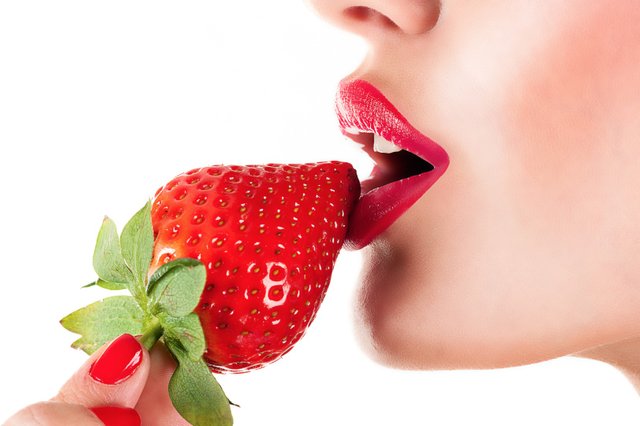
- Suggested by a type of mouse called C57BL with a high preference for alcohol also expressing a high preference for sweetened solutions of saccharin compared with DBA/2J mice which tend to have lower alcohol preference.
- Belknap et al. have showed a high genetic correlation between saccharin and alcohol intake in 15 strains of mice.
- Similar correlations between sucrose and alcohol intake have also been seen in mice suggesting that this is not likely to isolated to the use of saccharin but sweet tastes in general.
- Alcohol preferring rats have been found to greatly increase their fluid intake in the presence of alcohol (if it is added to their water). The same rats show a near identical increase in fluid intake with sweet fluids. The same increase is not seen in rats that do not have an alcohol preference.
- SL genotype/phenotype is more prevalent in children of alcoholics (Kampov-Polevoy et al. 2003).
- This same finding has been replicated in comparing "alcoholics, addicts, and control (nonaddicted) subjects by other groups as well (Pepino and Mennella, 2007; Wronski et al., 2007)."
Novelty Seeking Personality Trait, SL and Alcohol
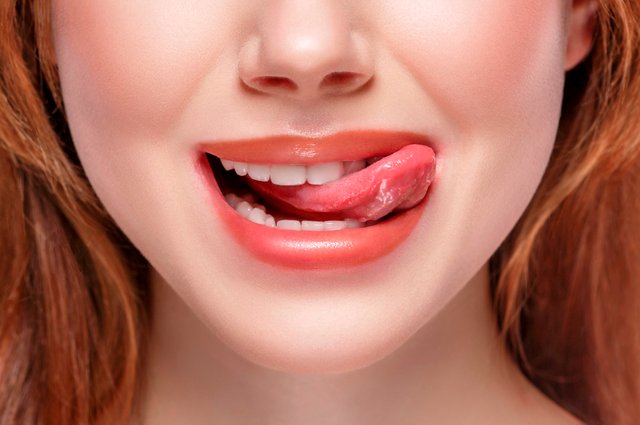
A further factor that of a novelty seeking (NS) personality seems to also interact with SL in predicting addictive behaviours.
When combined with SL:
NS has been consistently associated with deviance proneness, disregard of social norms as well as with early onset of alcohol drinking and excessive alcohol drinking.
Grucza and colleagues (2006) demonstrated that NS modulates the level of the alcoholism risk in high-risk families with high NS magnifying this risk and low NS acting as a protective factor.
The authors also point out that:
"These findings are consistent with Kampov-Polevoy and colleagues (2003) indicating that, in clinical populations, the estimated odds of being an alcoholic, on average, increase by 11% as NS score increases by 1 point in SL but not in SDL subjects."
The combination of sweet preference and NS represents a powerful predictor of risk for alcohol dependence.
Neuropeptide Y
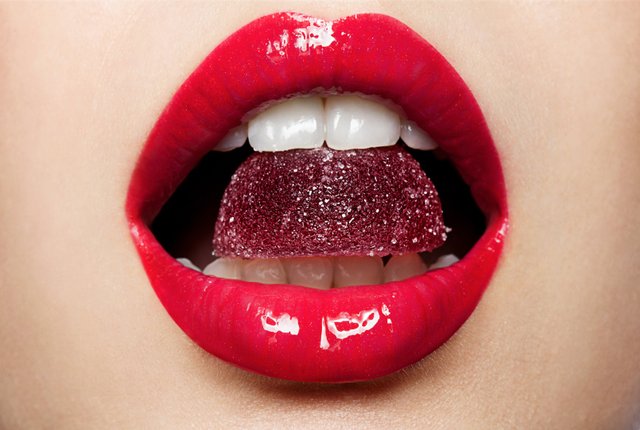
- NPY is a neuropeptide known to be involved in regulating feeding and reward behaviours.
- Low levels of NPY seem to predispose to higher alcohol and food intake.
- It is also thought to have modulatory effects in anxiety and mood disorders.
- Administration of NPY into the brains of animals can reduce anxiety related behaviours (Heilig et al 1989).
- Research suggests that it plays a role in alcholism (Carvajal et al., 2006; Thorsell, 2007).
- Mice which overexpress NPY (genetically) seem to consume reduced amounts of alcohol. Mice with reduced expression consume more (Thiele et al 1998).
- Alcohol preferring rats express more anxiety like behaviours and have lower levels of NPY in their amygdalae (part of the brain associated with anxiety) compared with nonpreferring controls (Hwang et al 1999).
Ghrelin

- Ghrelin is a gut peptide that is involved in appetite regulation and has actions on the central nervous system (brain).
- Ghrelin activates the reward (mesolimbic) system in association with food and possibly other types of reward (suggesting a role in addictions).
- High blood levels of ghrelin have been associated with BOTH binge eating and alcohol dependence (Jerlhag et al 2009).
- Jerlhag et al also showed that administration of ghrelin into the reward centres of mice brains leads to increases in alcohol intake.
- Blocking GHS-R1A (a ghrelin receptor) reduces alcohol intake in mice.
- A Single Nucleotide Polymorphism (SNP) - a type of genetic variation of the GHS-R1A receptor genes has been associated with high alcohol consumption and increased BMI (Landgren et al., 2008).
- Alcohol seems to suppress ghrelin levels in humans. Abstaining from alcohol seems to raise ghrelin levels(Kim et al., 2005 plus many others). This also suggests ghrelin as a possible mediating factor in relapse.
- Ghrelin levels correlate with alcholol craving in humans (Leggio, 2010).
Conclusion
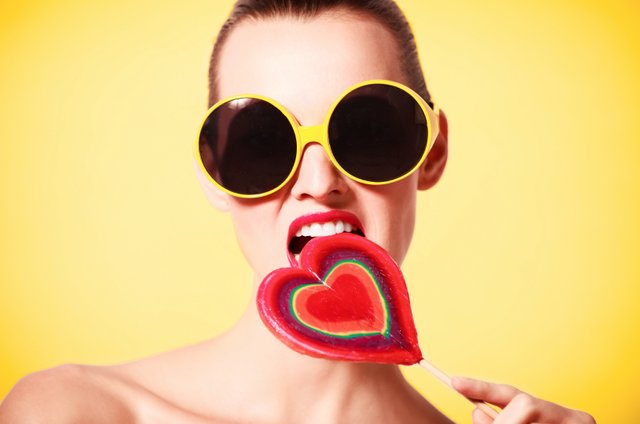
The review certainly presents a compelling case for the interaction of various food regulating mechanisms and their interplay with alcoholism.
As I have stated this is consistent with my own personal experience in terms of eating, sweet preference etc.
For the purposes of this post I have only covered the essential elements of the paper according to my personal opinion.
I would definitely recommend reading it if you have an interest in the subject.
It is not as long as some other reviews and the language used is not too opaque.
I will also be looking out for more recent studies to see if there have been any further developments in the field.
It would also be interesting to do some research on whether any of these factors have any direct interaction with the hypothalamic Agrp neurons discussed in the other recent paper I looked at.
References
- Leggio, Lorenzo, Giovanni Addolorato, Andrea Cippitelli, Elisabet Jerlhag, Alexei B. Kampov‐Polevoy, and Robert M. Swift. 2011. “Role of Feeding‐Related Pathways in Alcohol Dependence: A Focus on Sweet Preference, NPY, and Ghrelin.” Alcoholism 35 (2). Wiley Subscription Services, Inc., A Wiley Company. doi:10.1111/j.1530-0277.2010.01334.x.
- Cains, Sarah, Craig Blomeley, Mihaly Kollo, Romeo Rácz, and Denis Burdakov. 2017. “Agrp Neuron Activity Is Required for Alcohol-Induced Overeating.” Nature Communications 8 (January): 14014.
Thank you for reading
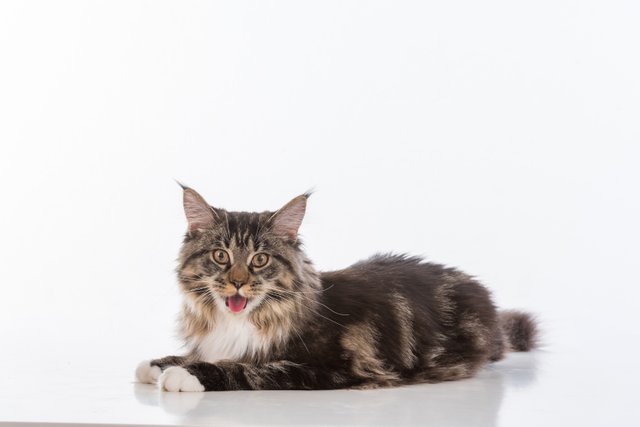
Before you go have you filled in the Coinbase form to list STEEM? It only takes a few seconds. THIS POST shows you how.
If you like my work please follow me and check out my blog - @thecryptofiend
Images are taken from my personal Thinkstock Photography account. More information can be provided on request.

Great post! In his seminal book, Sugar Blues, William Dufty explores the relationship between sugar consumption and alcoholism. Your article takes more of a behavioral approach while his is more about the metabolic relationship, in how the body metabolizes them.
Thank you:)
Cool I need to check it out. Thanks for the recommendation!
True I will see if I can find any open papers on the metabolic side when I have a moment.
What I found really astounding was the relationship between processed sugar and cancer. They've known since colonial times! In fact it seems that all processed foods seem to have that capacity...the more processed, the more carcinogenic.
I think it may well be related to the ability of most sugars and glucose in particular to damage proteins which can induce an inflammatory response. It has also been associated with accelerated ageing mechanisms.
What the Dufty book cites is that during colonial times, the plantation owners ate refined sugar while the workers ate cane, or raw (which I find much more enjoyable and tasty) The owners got cancer and the workers didn't. More recently natives in New Guinea that lived near the coast and ate a primarily Western diet got cancer while the people in the interior didn't even have a word in their vocabulary to describe it. I've noticed myself how people that consume a lot of sugar (pop which is high in glucose) tend to show their age more profoundly than those that don't. Unfortunately, it's almost impossible to escape sugar consumption. If you don't eat sugar, sweets in general or drink pop, on the average you'll still consume 50 lbs a year. Sugar is 10x as addictive as heroin. That's why they put it in foods...it keeps 'em coming back!
Yes I know. Processed foods are full of hidden sugar!
Are you sure, though?
Perhaps it's just a case of correlation being confused with causation.
People who overeat most likely have problems with impulse control, which of course can also lead to problems with alcoholism.
People with impulse control problems also do worse in life in general, which also can lead to depression, which then in turn can lead to alcoholism.
Impulse control is a fascinating subject, though. I think a lot of how we manage in life has to do with whether or not we control our impulses.
Always a possibility but most of the studies take that into account.
Yes and these things are all inter-related. Activation of the reward pathways is also strongly implicated in problems with impulse control.
For sure. I wish I had better impulse control! You have given me an idea for future posts - I'll see if I can find an open access review of the literature on impulse control :)
I am with schattenjaeger. There is definitely a correlation, but I feel they have missed the cause.
When trying to heal someone of their vice, smoking or eating or drugs, it is too easy to end up with the person just switching one vice for another. Quitting Smoking in particular, easily leads to overeating. The root cause is usually emotional and usually based in trauma (from childhood). If you don't fill that hole in their heart, one vice shunned, will just lead to another.
Getting older my tastes have changed, when I was younger it took nothing to eat a large bar of chocolate now in lucky to eat 2 squares, I prefer savory food but can't eat it as most of it especially pastrt gives me indigestion as for alcohol I used to live a drink now have none. But I'm still not losing any weight :(
As you get older it does change tastes and appetite. The exact mechanism is not well understood but it probably relates to hormonal changes - e.g. growth hormone levels etc. This also as metabolic effects which result in a greater tendency to gain weight - your calorie requirements tend to decrease.
Of course you can and you will :)
Then the menopause hits and it all goes South
Yes hopefully with anti-ageing research a cancer free solution can be found.
I can imagine it won't be easy but knowing you after reading so many of your posts I think you have the drive to push yourself and do this.
Thanks. Yes I've done it before so I can do it again.
I would love to see that in my life time
I suspect it will happen quicker than we think. One of the things I'm thinking about doing if I do get out of psychiatry is going into anti-ageing/life extension work. I have a particular interest in neurodegenerative diseases like Alzheimer's and Parkinson's Disease and I think that is the field that will most likely provide cures for them. I did one of my university research projects on them.
Good luck to you, You go for it :)
Thanks will try. First I have to get myself back and that is not easy - am working hard on it.
This post has been ranked within the top 10 most undervalued posts in the first half of Jan 22. We estimate that this post is undervalued by $20.65 as compared to a scenario in which every voter had an equal say.
See the full rankings and details in The Daily Tribune: Jan 22 - Part I. You can also read about some of our methodology, data analysis and technical details in our initial post.
If you are the author and would prefer not to receive these comments, simply reply "Stop" to this comment.
Thanks :)
Hey @thecryptofiend,
Awesome article! I never really thought of a correlation between drinking and having a sweet tooth. Both are highly addictive and you present a good case for it being so. I have a few friends who love to drink so I'll find out if they also love their candy too.
Thank you for your great work....
Thanks glad you liked it:)
Very nice post, addictions are very complex physical and psychological phenomenon. It wouldn't surprise me that our reward complex for sugars (which are addicting!) would be involved in setting us up for alcohol or other addictions. In essence when eating sweets we are priming these reward pathways to be responsive to other pleasure molecules like alcohol.
However as you point out, its not just these reward pathways, there are a variety of other mechanisms by which the body craves this sort of stuff.
Interesting :)
Thanks! Yes I find the subject fascinating.
Great post!, Upvote. Good Work
Thank you:)
I heard people say don't drink on an empty stomach. So, yes, I do think eating has someting to do with it.
True.
Great article, it was so good that it was put in Queue for delivery on @Steemit Twitter. ; )
Thanks:)
As somebody who has both a sweet tooth and a heavy drinking habit, this post makes some sense.
And I have been told that I may have an "addictive personality"; I never really looked in the psychology or bio-psych of that. I have described myself as an adrenaline junkie before.
Bookmarking this one for an additional reading or two
and GREAT pics ;>
Thanks yes the thing is it all fits for me too. I think there are a lot of us with these traits! Glad you liked the pics I often spend a couple of hours just picking those so it is nice when someone notices:)
good looking chicks sell LOL
I just increased my payout on the last post by about 5 times the norm, and I think it was because I included pic of a good lookin gal
of course, I also suggested that I may show her naked as well!
Lol it worked on me!
LOL
I have the suspicion those traits correlate with high intelligence
Lol I hope so:)